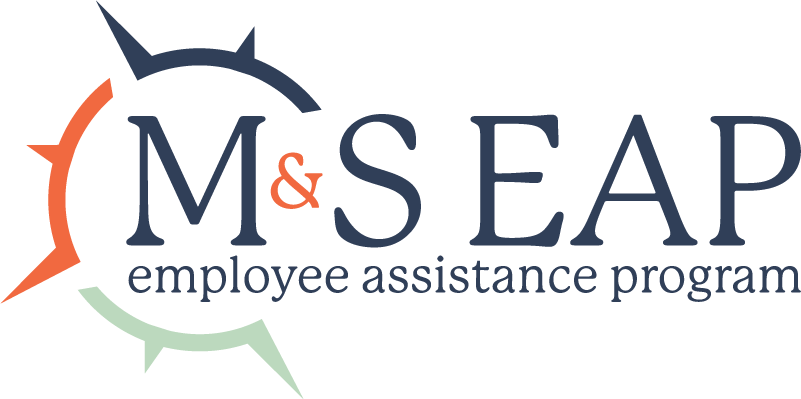Why Business Leaders Should Care About the Financial Health of Their Employees

It’s unlikely that your coworkers or the employees who report to you will openly talk about personal finances. The way we handle our money is an intensely private matter and opinions on the best way to balance a budget, invest and save are often a topic of controversy.
While talking about personal finances is generally a taboo subject, as an employer the financial health of your worker’s likely matters more than you know. The way your employees handle their money can have a direct impact on their productivity and therefore your bottom line.
If you’re asking yourself “what is financial health?” or “how do I build a culture that supports financial wellness in this company?” you can use this article as a guide and resource for helping your workers lead fulfilling careers and lives.
What is financial health?
There are plentiful definitions of what financial health is, but in summary personal financial health indicates that a person experiences the feeling of economic security and the ability to have options in making decisions about spending and saving. Building a sense of financial well-being includes the following aspects or benchmarks of security.
- Understanding the process of saving for future purchases
- Feeling that the money you save is secure
- The ability to balance a budget that prioritizes both wants and needs
- Financial independence from parents
- Investment in retirement
- The ability to support loved ones
- Having enough saved to cover surprise medical expenses or other unanticipated events
Financial health doesn’t always mean that every person will have each of the milestones met immediately, but that actionable plans can be made to achieve them and a person experiences relative financial stability.
A lack of financial health
Financial stability is a goal that everyone desires for him or herself, but many struggles to achieve. Financial insecurity can be caused by poor money education, bad investments, significant debt or negative spending habits. A lack of financial health often becomes noticeable by its effects.
Poor financial health can lead to the following results:
- Stress
- Anxiety
- Depression
- Damage to relationships
- Distractibility
- Decreased motivation
- Poor decision-making
- Stealing or lying
- Interpersonal conflict in the workplace
- Feeling insecure
Financial stress and mental health are closely tied, and a person’s money issues will spill over and cause negative effects in all areas of life, work included.
How financial stress impacts employers
The connection between financial stress and mental health is often brushed aside as a personal matter. While mental wellness should be respected as a private concern, it’s also in a company’s best interest to offer its employees aid in accessing treatment and resources. Here’s how mental health from money stress could be impacting your bottom line.
- Lower productivity – Employees who are distracted by thoughts or worries about their financial situations are less focused when they’re at work.
- Higher absentee rates – Financial stress is often caused by a lack of savings, which makes it harder for employees to cover unexpected expenses, such as car repairs or child care when a friend or family member cannot babysit. These situations may prevent employees from coming to work.
- Increased healthcare costs – Stress can affect employees both mentally and physically, leading to conditions like obesity and migraines. Not only that, but employees who are struggling with their finances might put off going to the doctor and receiving preventative care, leaving them vulnerable to more serious (and costly) health conditions in the long term.
Helping your employees deal with financial strain isn’t just in your best interest. It not only helps your employees to be more productive, but those who feel cared for by their company are more likely to stay with a company and feel positive about its mission.
Financial stress and mental health
Whether or not you can see it, it’s likely that many of your employees are struggling to manage their income in a positive and productive manner and it’s causing stress that interferes with work. Prolonged stress can cause mental health distress or even provoke the onset of a diagnosable mental health disorder.
If your employees are experiencing financial insecurity, you may feel helpless to intervene as an employer. You may be thinking that you don’t have time to help your workers create budgets and tackle debt. You may also feel that it’s inappropriate given your roles, and many employees would agree. Helping your employees handle their money matters is a tricky line to walk, but there are ways that your company can support its employees in finding money and mental peace.
Where can I access a financial health assistant?
If you’ve been looking for a financial health assistant to aid your employees in organizing their personal matters, look no further than Mazzitti & Sullivan EAP. With Mazzitti & Sullivan you can access a wide variety of services like mental health counseling, financial advice, lifestyle resources and individualized support.
More specifically, when you work with an EAP your employees will be able to heal money issues and mental health distress simultaneously. A financial health assistant can offer budgeting tools, money-saving techniques and tried and true evidence-based tactics to get out of debt and invest in the future. EAPs also offer numerous sessions of mental health counseling at no charge to employees.
Help your employees leave their money troubles behind so they can focus on the task at hand. Improve employee retention, boost job satisfaction and promote a positive work culture with an employee assistance program. To find out more, contact Mazzitti & Sullivan EAP today.



